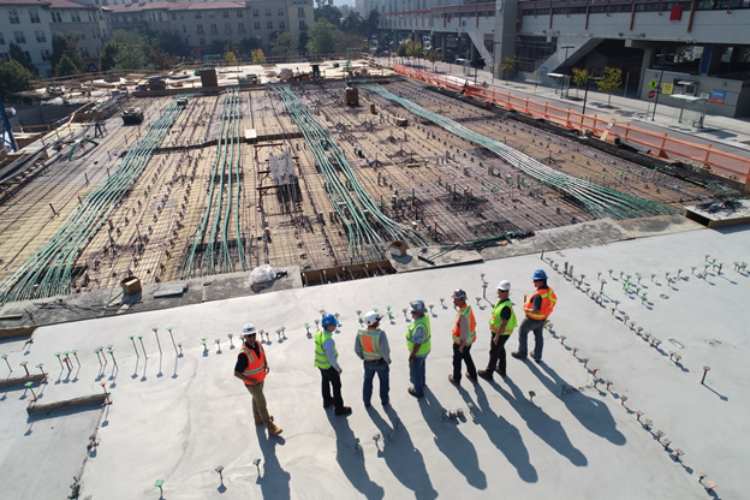Last Updated on November 4, 2025 by admin
Are You Interested in Getting into Construction Jobs?
The Associated General Contractors of America released a study (January 2020) showing the strong growth of the construction industry. The highest growth numbers were found in construction jobs for bridges, highways, schools, hospitals, and water and sewer systems.
Although many construction activities have faced delays or cancellations due to economic uncertainty, the forecast for 2022–2024 remains optimistic. Construction jobs are expected to recover with an annual average growth of 1.1%. If you’re considering a career in this field, now is a great time to explore construction training programs and the various construction job opportunities available.

There are many specializations within the construction industry – one in which the old saying is true – ‘There is never a dull moment.’ A few positions in demand include –
1. Construction Project Manager – Manages hiring, scheduling, and onsite problem-solving.
2. Glazier – Specialises in constructing glass walls.
3. Mason – Builds the foundations of construction projects.
4. Construction Safety Officer – Ensures workplace safety, implements regulations, and uses metal identification tags to monitor construction materials such as pipes and valves.
The Construction Safety Officer role highlights how diverse the construction career path can be. This job involves selecting appropriate tags that display critical safety information like load limits, hitch types, and lifting instructions.
Their job may involve everything from implementing effective policies and regulations to selecting metal identification tags to issue warnings, track assets, and tag valves and pipes. In addition, the tags indicate information such as appropriate hitches, maximum loads, and lifting instructions.

There are many entry points into construction jobs — including apprenticeships, college degrees in construction-related fields, and specialised technician training. Earning construction certifications can give you a competitive edge and make transitioning into the role you want more accessible.
Attending a dedicated construction school is one of the best ways to begin your journey. For example, the Philadelphia Technician Training Institute offers a Concrete, Masonry, & Framing Program that is both affordable and flexible. The program includes hands-on construction training and lifetime re-education opportunities, making it an excellent investment for long-term success. Mason workers in this field can expect to earn an average of $46,500 per year, with potential for higher income through self-employment or business ownership.
Construction requires more than physical strength. Critical skills for success include endurance, hand-eye coordination, quick reflexes, reading comprehension, math skills, and effective communication. These are all essential, whether you’re starting or planning your long-term construction career path.
Besides formal education, investing time in online courses, particularly those focused on communication or business skills, can make your résumé stand out. Knowledge of entrepreneurship is a valuable asset for those interested in running their own construction business.

Many jobs in construction require using technologies such as drones, smartphones, and apps and building information modeling software. The latter is used to digitally model planned constructions, creating multiple metadata layers and rendering them. In addition, the use of BIM enables teams to work together efficiently since it allows each team member to add their expertise and work to the same model. Thus, the render can evolve and change as required, improving efficiency and speed.
Other essential technologies include 3D printing (for prefab projects), Artificial Intelligence (to execute planning update sequences and task management and boost productivity), and Virtual.
Reality (to ‘step into’ rendered projects to get a feel for what the project will look like in the future).
Other trending technologies in construction include:
- 3D printing for prefabricated components,
- Artificial Intelligence for planning and productivity,
- Virtual Reality to visualize and walk through projects before they are built.
Being tech-savvy gives workers a substantial advantage and broadens the construction job opportunities available.
The Philadelphia Technician Training Institute offers courses such as the Concrete, Masonry, & Framing Program, which is highly affordable and can be completed day or night. The course includes hands-on construction training and lifetime re-education on any facet of education in the same field. The average pay for a mason worker stands at around $46,500 annually. Still, you can make a significant increase in your masonry business.
The construction industry continues to evolve, offering numerous career paths and consistent demand for skilled workers. Enrolling in comprehensive construction training programs, earning construction certifications, and developing tech and communication skills will give you a solid foundation in your construction career path. Whether you’re aiming to work on site or manage projects, this is a booming field with a bright future.
Read More: